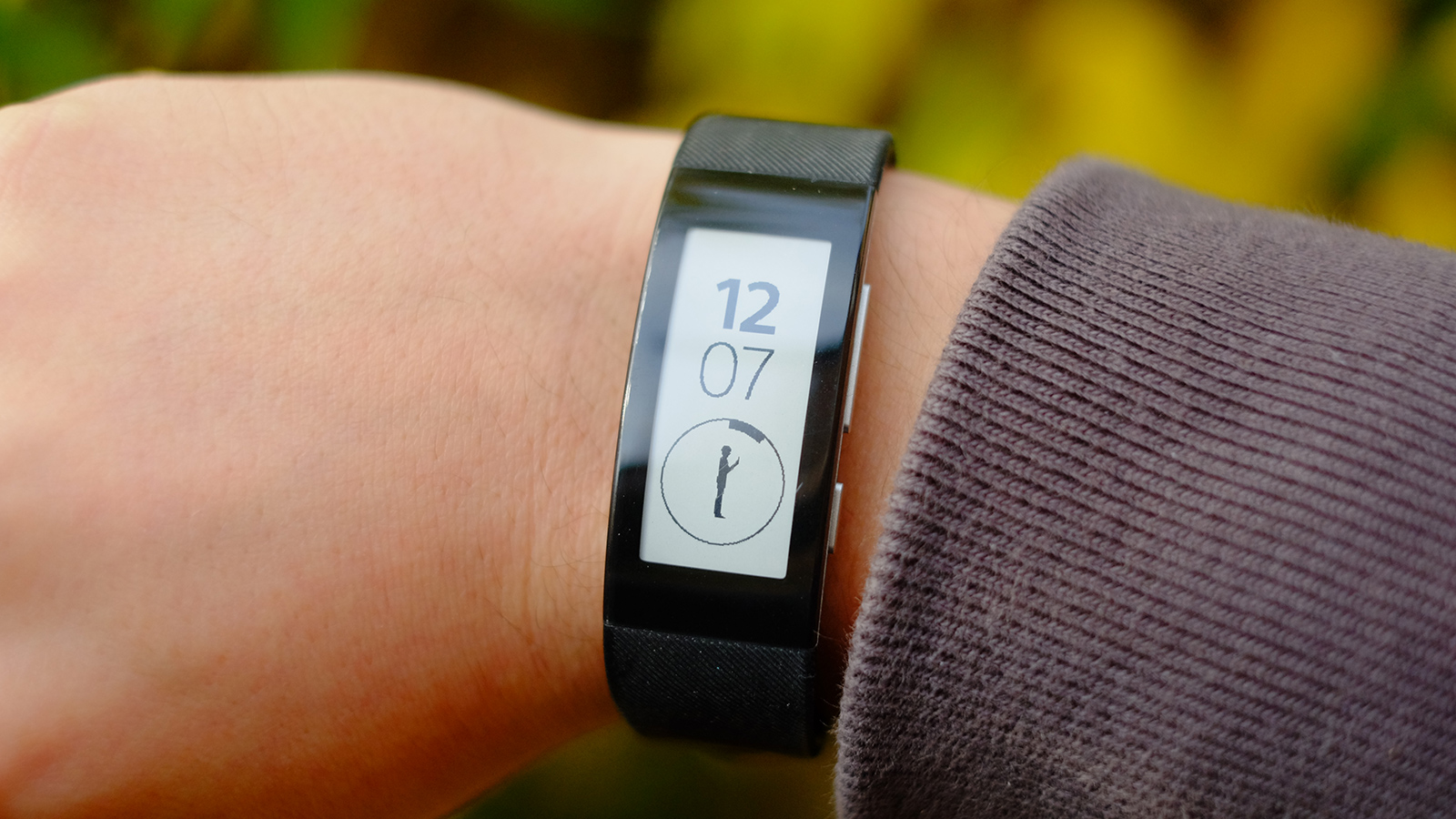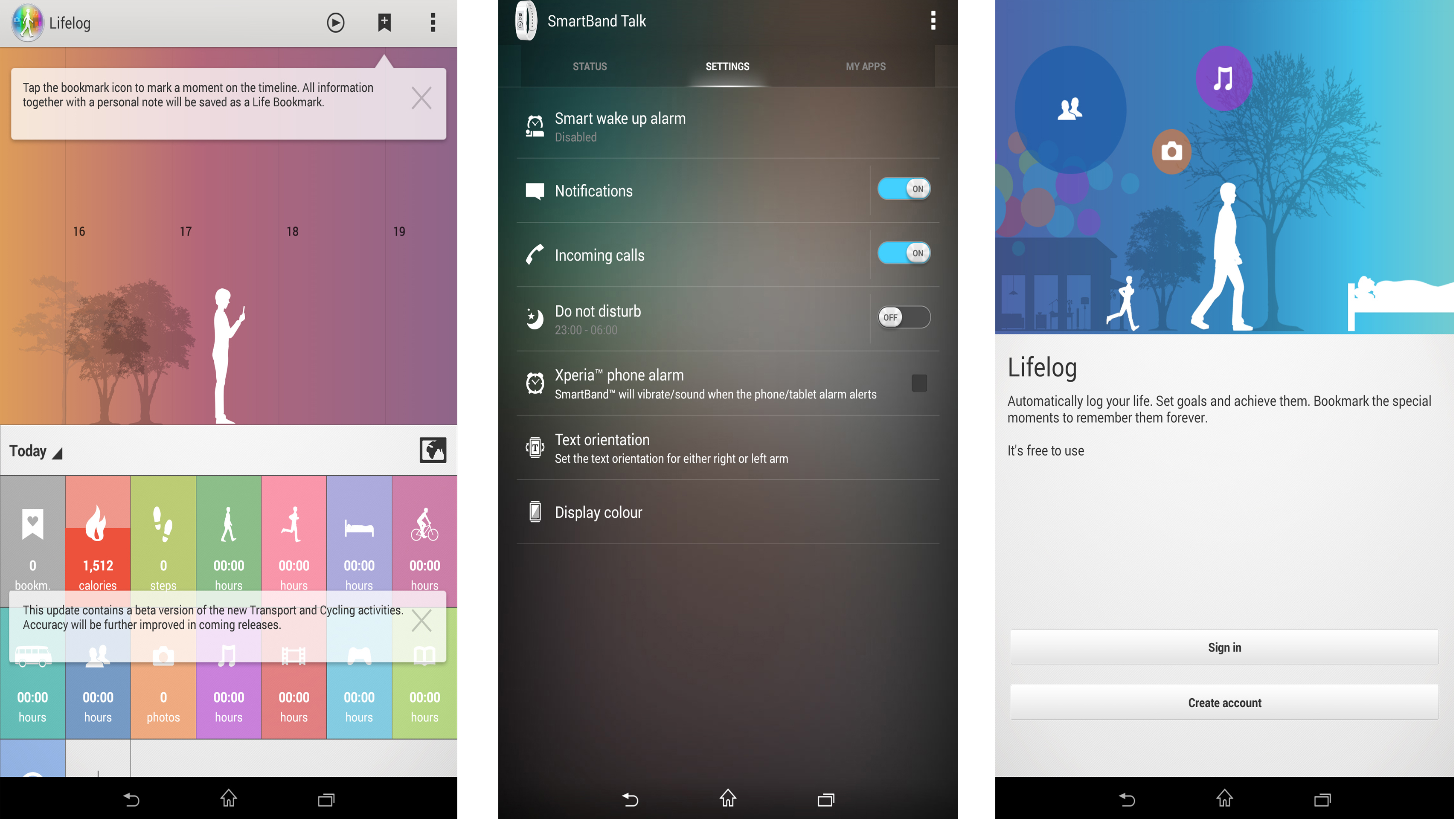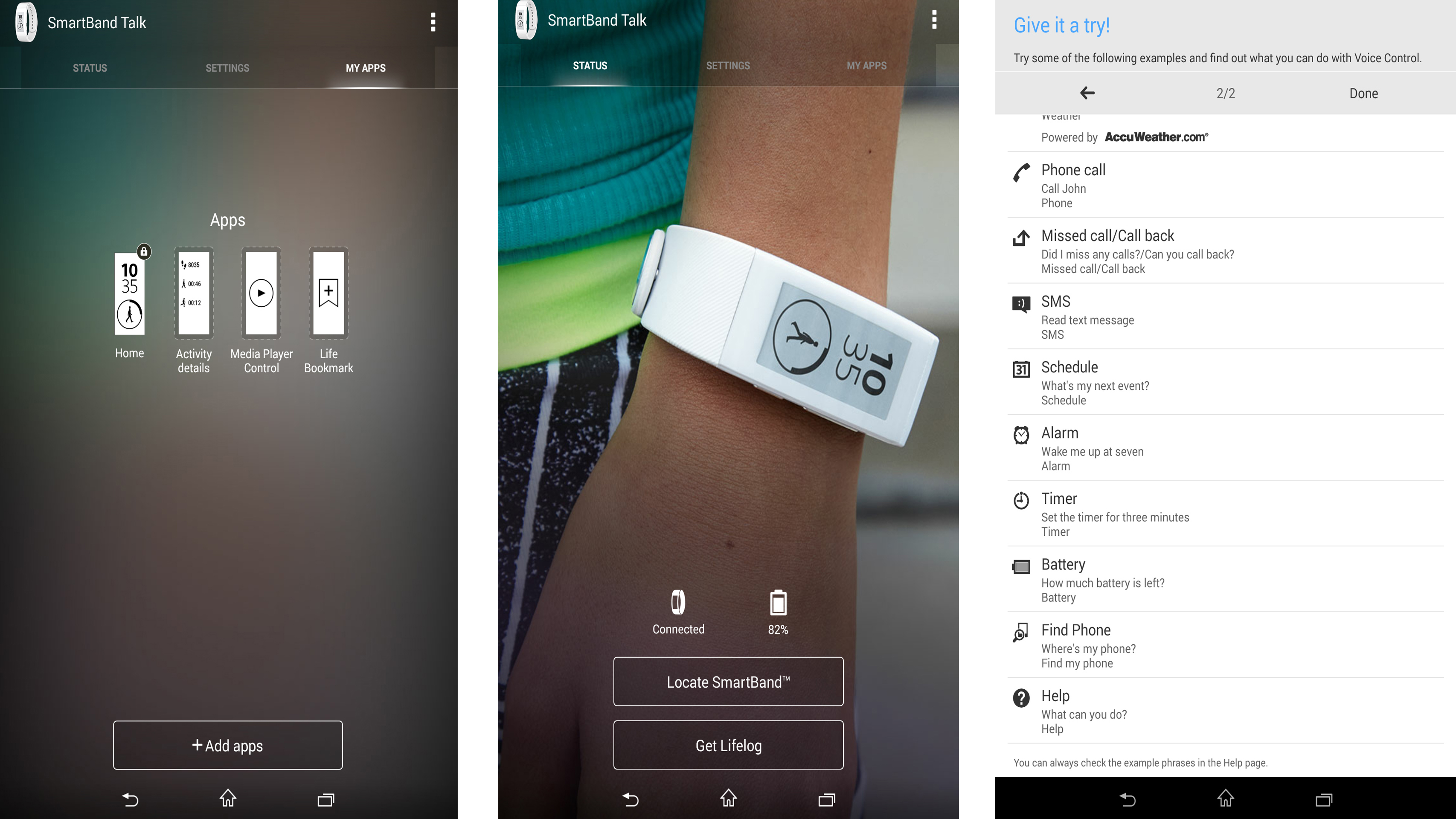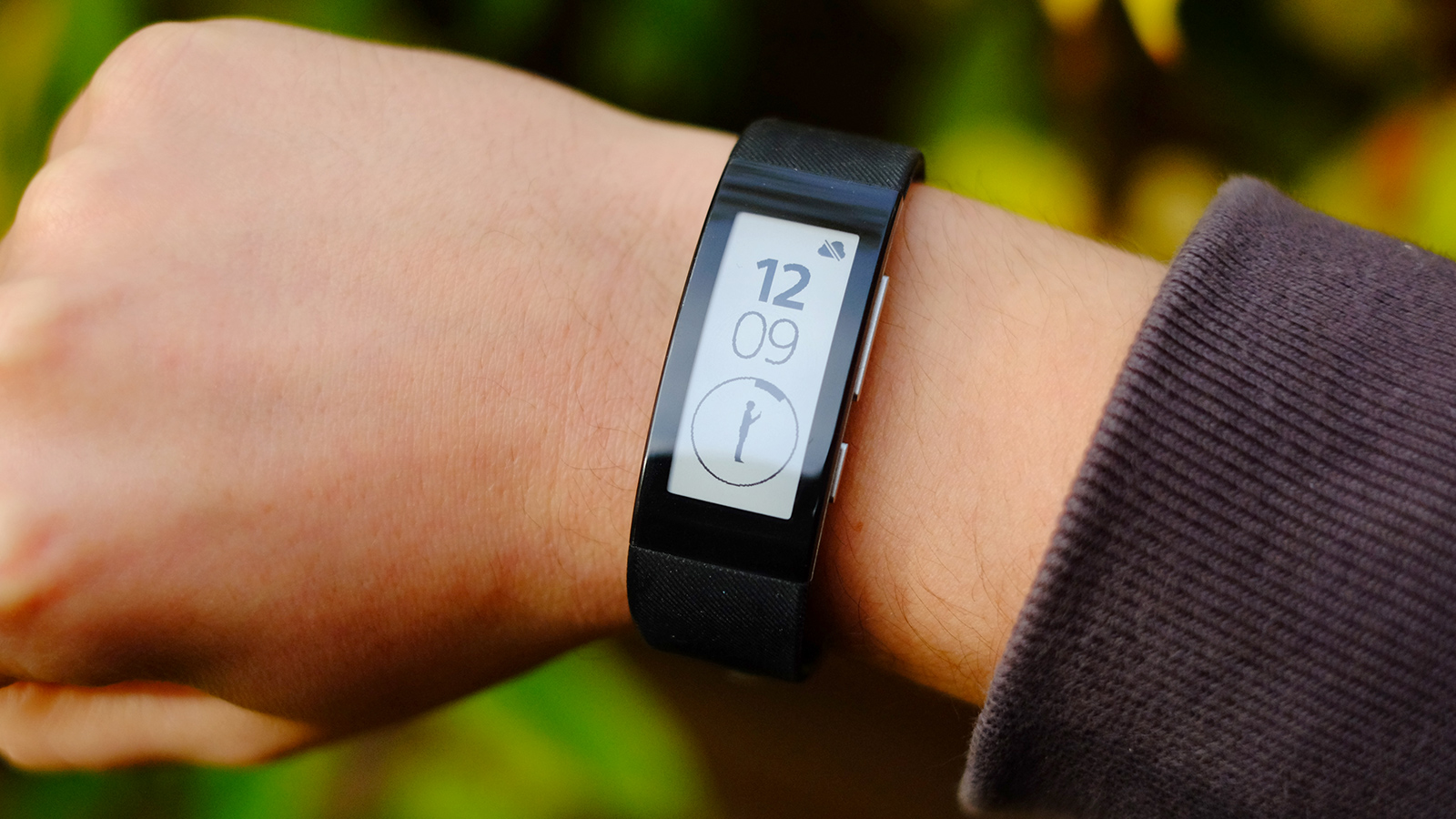Why you can trust TechRadar
There's so little interface to the Sony SmartBand Talk it's almost comical. There's the screen that tells you the time, your activity screen and that's it, at least when it's first taken out of the box.
While you can take calls and pipe through notifications to the band from your phone, these pop up as and when needed, only to disappear without a trace, never to be dredged up again.
Like most fitness trackers, you need to hook the Sony SmartBand Talk up to a phone or tablet to use it properly. The two communicate using Bluetooth 4.0.
There's a dedicated SmartBand Talk app that lets you tweak the sort of settings you just don't have access to in the band itself. These include choosing whether to receive notifications and calls, whether to use the alarm and the mini watch apps you want to see on the Talk. I'll look into exactly what's on offer in the next section.

However, what about fitness? The band is designed to hook into the Lifelog app, which tracks all of your activity. Not just exercise either, but how many photos you take, how much music you listen to, how many games you play. The Sony SmartBand Talk is just a part of it.
Its tracking is also pretty limited. At the time of writing, it's designed to track walking and running, using cadence detection.
In other words, it's an accelerometer-based pedometer with enough smarts to know that the jogs of your body will be a bit snappier when you run, compared to walking.
There's no GPS and, more pertinent among this crowd of trackers, no altimeter. This measures how high up you are, and in some Fitbit fitness trackers is used to see how many flights of stairs you've climbed. Clearly Fitbit think we're more likely to trudge up buildings than mountains. A fair assumption.

You can set a goal for each day, but that's the extent of the fidelity to the tracking here at this point.
There are a few disappointments in this. First, it doesn't support sleep tracking, yet. Sony says this will be implemented in time, but it's not there at present. This is pretty disappointing when a great many rivals have offered it for a while. It's a bit late for a tracker like this to offer 'coming soon' extras as basic as sleep tracking.
You also can't farm out your tracking data to other fitness apps, as you can with a great many rivals including Android Wear trackers. If you don't like the way Sony Lifelog works, you're done for at this point.
I can hope that the Sony SmartBand Talk API might open up, but it seems a bit optimistic when Sony's focus is going to be on building up Lifelog, not offering alternatives.

The Sony SmartBand Talk isn't going to satisfy regular runners who'll want a GPS watch either, or those who want to compete with their fitness band owning friends on the Fitbit or Endomondo platforms. It doesn't have a heart rate sensor, either, which is becoming more common in fitness trackers by the month.
I also find wrist-worn trackers to be far less accurate than ones worn on your belt. It's the nature of the beast, as you move your arms when not actually moving around far more than the rest of your body. This is what leads to trackers like the Fitbit Flex to offer fairly poor accuracy.
The Talk isn't absurdly generous with its steps in the way some rivals are, though. Plenty of wrist trackers over-report your figures.
I do also like the way the screen lets you check out your daily steps figure and your time of walking/running for the day with the press of a button. Screen-less fitness trackers don't get you this and it takes away much of the fun of using one.
Andrew is a freelance journalist and has been writing and editing for some of the UK's top tech and lifestyle publications including TrustedReviews, Stuff, T3, TechRadar, Lifehacker and others.

